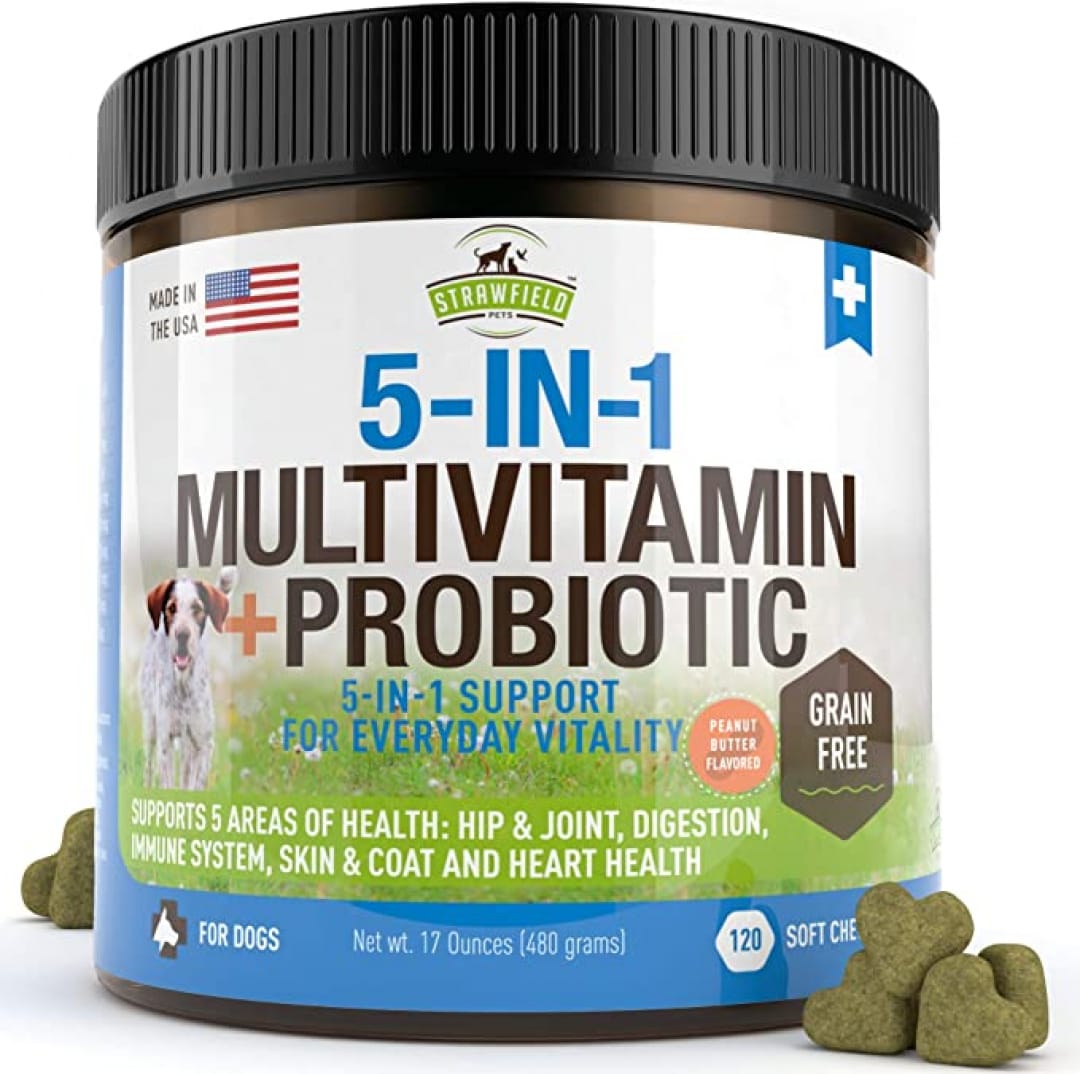
Just like humans, dietary supplements can be beneficial for dogs of all ages. But does your furry family member actually need a supplement in addition to a healthy diet? And if so, which are the best supplements for dogs of different ages? Also, what about dogs with specific health conditions? Please continue reading to find out.
If you feed your dog commercial dog food that is labeled as complete and balanced, then your dog probably does not need additional dietary supplements unless your veterinarian recommends it. The commercial dog food you give your pooch should contain all the necessary nutrients, vitamins, and minerals your dog needs to stay healthy. However, be sure to check the label and give your dog commercial dog food that is age-appropriate. Puppies, adult dogs, and senior dogs need different nutrients at the various stages of life.
People who give their dogs home-cooked food may need to include a supplement to ensure the dog’s diet is complete and balanced. Home-made dog food may not be nutritionally complete, especially if your dog is on a vegetarian or vegan diet. If this is the case, you should consult your veterinarian about which are the best supplements for dogs based on age. Your vet may recommend a multivitamin or other dietary supplements.
Not sure if commercial dog food vs home-cooked meals are best for your dog? Your vet can also give you information about the best commercial dog foods and what kinds of foods to include in your dog’s home-made diet.
You should never give your dog a human multivitamin (or any medication meant for humans). Dogs have very different nutritional needs compared to humans. Just like human food may not be safe for your dog, vitamin supplements meant for humans may contain too much of certain nutrients that can make your dog sick. Also, human dietary supplements may contain ingredients that are toxic for dogs. Always purchase high-quality dog supplements and check with your veterinarian before giving them to your four-legged friend.
Dietary supplements for puppies are formulated to provide growing pups with all the essential vitamins, minerals, fatty acids, and amino acids required for healthy development. Many of these supplements are in the form of easy-to-digest soft chews that taste like a treat, so they can be used during obedience training. Some of the best supplements for dogs even help to freshen your puppy’s breath. Be sure to give the correct dosage based on your puppy’s weight.
A multivitamin can benefit dogs of all ages. This is a convenient way to give your furry friend important nutrients like vitamin A, vitamin D3, vitamin E, vitamin C, B vitamins, coenzyme Q10, manganese, folic acid, and biotin. A carefully chosen blend of ingredients can support hip and joint health, heart health, skin health, liver and gut health, and immunity. A multivitamin for dogs can also help to boost physical endurance and energy in dogs of all breeds, sizes, and ages.
Older dogs may need dietary supplements that support heart, brain, eye, and liver function and promote overall wellbeing. Some of the ingredients in the best supplements for senior dogs include vitamins A, B, C, D, and E. Other important nutrients to look for on the label include essential fatty acids which are good for your dog’s skin and coat as well as immune function. Essential fatty acids also have anti-inflammatory properties and can help relieve aches and pains related to arthritis in senior dogs.
If your dog suffers from joint problems, talk to your vet about giving supplements containing glucosamine and chondroitin. These ingredients support joint health and have anti-inflammatory properties. Other ingredients that can support joint function in dogs include omega 3 fatty acids, hemp oil, collagen, and proteoglycans. However, don’t be tempted to give your dog a human joint supplement with similar ingredients. This can prove toxic for your dog.
If your dog has skin issues or environmental allergies, supplements containing ingredients such as salmon oil, omega 3 fatty acids, and colostrum can help to reduce inflammation and boost skin and immune health.
Probiotics for dogs can help to replace healthy gut bacteria and boost digestive health and immune function. Talk to your vet about recommendations for a supplement especially if your dog has frequent bouts of diarrhea, upset stomach, or constipation.
Many dogs develop vision problems as they grow older. Supplements can provide essential nutrients to support eye health, such as vitamins, minerals, omega 3 fatty acids, lutein, and lecithin.
If your dog is expecting, talk to your vet about giving her a prenatal vitamin. These formulations contain larger amounts of nutrients like iron, zinc, and folic acid that are necessary to maintain optimum health in pregnant dogs and support the healthy development of the puppies.
Keep in mind that even the best supplements for dogs cannot be a replacement for a high-quality diet, maintaining a healthy weight, and regular vet exams. These are key factors in keeping your dog healthy and by your side for as long as possible. With that said, supplements can help to optimize your dog’s physical and mental health. They can be a great addition to a healthy diet and can provide a careful blend of nutrients. Always talk to your vet before giving your dog any supplement as too much of certain nutrients can prove harmful.
05 September, 2022